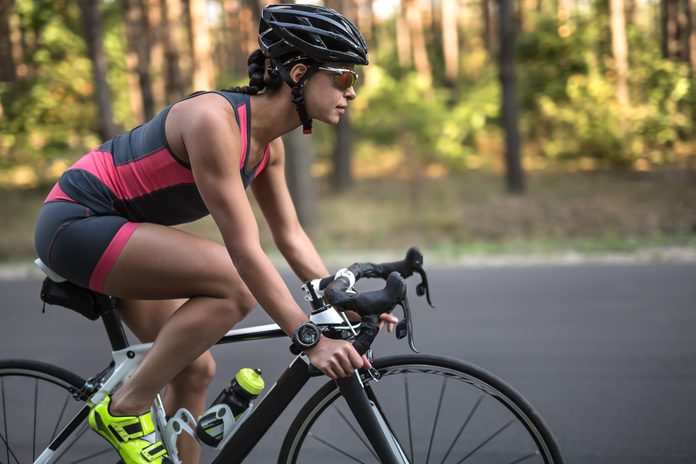Expert Tips on How to Buy a Bike Helmet

Protect your most precious asset by following this advice.
I started cycling last summer as a way to get outside, get active and combat my pandemic-induced stir-craziness. I’m cautious by nature, and while I thought I was taking every safety precaution, a more experienced cyclist friend pointed out that my helmet (which I bought because it was cute and affordable) was designed for skateboarding. Turns out that’s not super helpful — or safe — for biking. If you are as confused as I am about how to pick the right helmet, here are the five expert tips you need.
(Related: I Just Bike for Fun—Do I Really Need Padded Shorts?)
1. Stick to your sport
While there is some crossover among helmets designed for different sports, “it’s usually best to stick to the sport in which the helmet was designed to be used,” says Claire McFarlane, the programs and operations manager at Cycle Toronto. “Helmets are designed differently for different sports to take into account factors like travelling speed and the way people fall when they’re participating in those sports.”
2. Make sure it’s certified
Choosing a helmet with an approved standards label means you’re getting a product that’s been rigorously tested by the manufacturer. Look for CSA (Canadian Standards Association), CPSC (Consumer Product Safety Commission), Snell or ASTM (American Testing and Materials).
(Related: 5 Handy Biking Apps to Amp Up Your Ride)
3. And look for MIPS
The multi-directional impact protection system, or MIPS, is a safety feature on many new helmets. It refers to a yellow plastic liner in the helmet that’s engineered to help prevent certain types of concussions by rotating slightly, independent of the outer helmet.
(Related: It’s the Summer of Two Wheels! Here Are Some Post-Ride Rituals to Try Now
4. Get the right fit
McFarlane suggests using the 2-V-1 method: With the helmet on, you should be able to fit roughly two fingers between your eyebrows and the helmet, the straps should form a “V” around your ears, and you should only be able to fit one finger between your chin and the helmet strap. “You want the helmet to be snug but not so tight that you feel like it would give you a headache if you wore it for an hour or more,” says McFarlane.
5. Go on and splurge a little
Safety is priceless, and the more you spend on the helmet, the more comfortable it will be. Helmets on the higher end of the price spectrum tend to have better ventilation, which makes them lighter, more breathable and much more pleasant for longer rides. “A lighter helmet has significantly less impact on your neck,” says Ira Kargel, co–owner of Gears Bike Shop. “You won’t think it’s a big deal, but small things like adding a bit of weight to your head and shoulders can have a long-term impact.”
Now that you know how to buy a helmet that fits, this is why golf is the perfect pandemic sport to get into.




